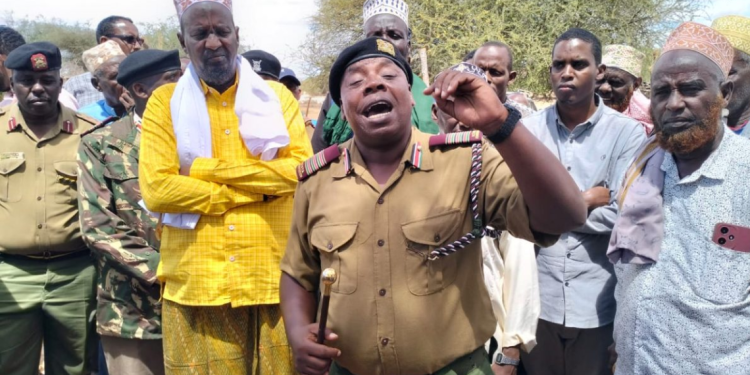The Kenya Defence Forces have joined a multi-agency team conducting patrols in parts of Tana River following the deaths of nine people in interclan violence.
Inspector General of Police Douglas Kanja reported that the team has helped stabilize tensions in the region over the past few days.
He noted that the first fatal incident occurred on October 4 in Anole, resulting in five deaths and two injuries. That same day, a retaliatory attack in Nanighi Village left four more dead, with assailants using crude weapons and setting several homes ablaze.
Preliminary investigations suggest that the violence stemmed from a dispute between two communities over control of a watering point in Anole.
“We have therefore intensified security operations in the area, with additional teams from the National Police Service and KDF, while the Directorate of Criminal Investigations has initiated an inquiry to track down those responsible for these violent acts,” he stated.
Kanja assured that the situation is under control and urged local communities to maintain peace.
“The National Police Service, in collaboration with other security agencies, remains vigilant and is closely monitoring the situation in Tana River County and other regions. We encourage the public to work with the police by reporting any criminal activity or suspicious individuals.”
Senior security officials from the regional command in Mombasa visited the area on Monday to help prevent further attacks.
The conflicts, which began last week, have seen various villages embroiled in violence, with warring factions employing firearms, bows, and arrows, posing challenges for security personnel.
Tana River County Commissioner David Kosgei announced that the Kenya Defence Forces and specialized units from the Administration Police have been deployed to restore order.
Tensions remain high in parts of the county, with the recent killings bringing the death toll in the area to 12 over the past two weeks.
Many locals have been displaced due to the conflict, seeking refuge in schools and other public facilities.
Local leaders assert that the conflict arose when flood victims, primarily farmers, were relocated from the banks of River Tana and settled along the Garissa-Hola road, a decision made by the county government.
The pastoralists, who traditionally grazed their livestock in the area, opposed the resettlement plan, viewing it as a land grab.
They claim ownership of the land designated for farmers displaced by floods when River Tana overflowed during the recent rainy season.
Violence escalated in the KBC area, where flood victims had recently settled; a village elder, Daud Shora, aged 58, was shot multiple times and died instantly.
Residents are now calling for the arrest of individuals possessing illegal firearms and have accused some politicians of inciting violence by pitting communities against each other.
Last month, at least three people were shot dead by unidentified assailants in an IDP camp in the area.
These clashes come just a week before five political leaders from Tana River County are set to appear before the National Cohesion and Integration Commission on October 8, in connection with incitements related to tensions between communities in Tana River and neighboring Kitui counties.
















